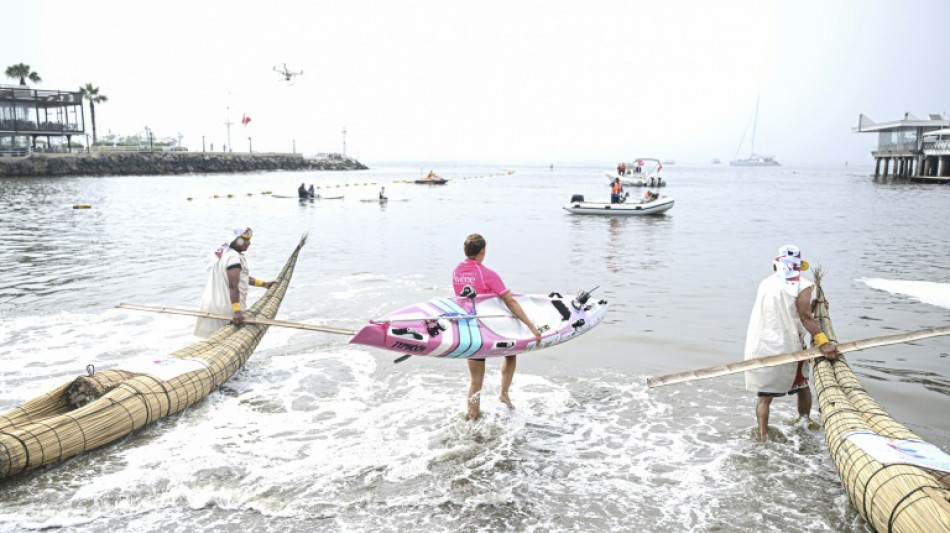

Six women in Peru embark on transoceanic voyage on paddle board
Six women are attempting to paddle 8,000 kilometers (5,000 miles) across the Pacific Ocean to raise awareness about how sport can help cancer patients overcome emotional distress.
These women -- one from Spain and the others French -- set off on Wednesday from Lima with their single board and paddles heading for Mo'orea in French Polynesia.
"We're going to attempt an unprecedented challenge: connecting Lima to Mo'orea on a board. We're six water women," Stephanie Geyer Barneix told AFP from the Lima Rowing Club before setting off.
"It is a project that has been three years in the making. Today it is being realized," added the 47-year-old, a survivor of breast cancer.
"We're going to paddle day and night to try to arrive at the end of March in Mo'orea."
The women will take turns on one board, swapping places every hour, to paddle standing up while the other five rest in a catamaran traveling behind it with first aid personnel aboard.
All six are athletes and trained coast guards, aged between 22 and 47.
They will each paddle for about four hours a day, with Geyer Barneix expecting them to advance five to six kilometers every hour.
This attempt is inspired by the 1947 Kon-Tiki expedition led by Norwegian explorer Thor Heyerdahl.
He built a wooden raft using centuries old materials and technologies in a bid to prove that ancient South American people could have reached Polynesia by sea.
"Originally we saw that the shortest route was from Mexico but then we discovered the history of Kon-Tiki, which inspired us quite a bit as it was comprised of six men and we're six women," said Geyer Barneix.
Also taking part in the "Cape Optimist" adventure are Alexandra Lux, Emmanuelle Bescheron, Itziar Abascal, Marie Goyeneche and Margot Calvet.
Spaniard Abascal, 34, powered the first paddle strokes from the Peruvian coast.
She was escorted off by two local fishermen aboard rustic rafts made from an indigenous aquatic plant that has been used in navigation vessels for centuries.
"It's a huge sporting challenge to be able to tackle this great journey," said Abascal, whose parents both had cancer.
"They taught me to never give up. You always have to keep going."
"That's our motto: taking it day by day, stroke by stroke all the way to Polynesia. It's a bit like how the illness progresses, day by day, step by step."
The expedition aims to raise funds for Hope Team East, an association that supports people suffering from or recovering from cancer through sport.
"We're here to paddle for sick children ... we all have oceans to cross," said Geyer Barneix.
X.Fitzpatrick--NG



